
Gallipoli, is a city rich in traditions. On New Year's Eve, papier-mâché puppets are burned, at Easter one of the most emotionally charged holy weeks in the Catholic world is experienced, and Carnival cannot be anything other than a great celebration animated by immense floats and a lot of local involvement.
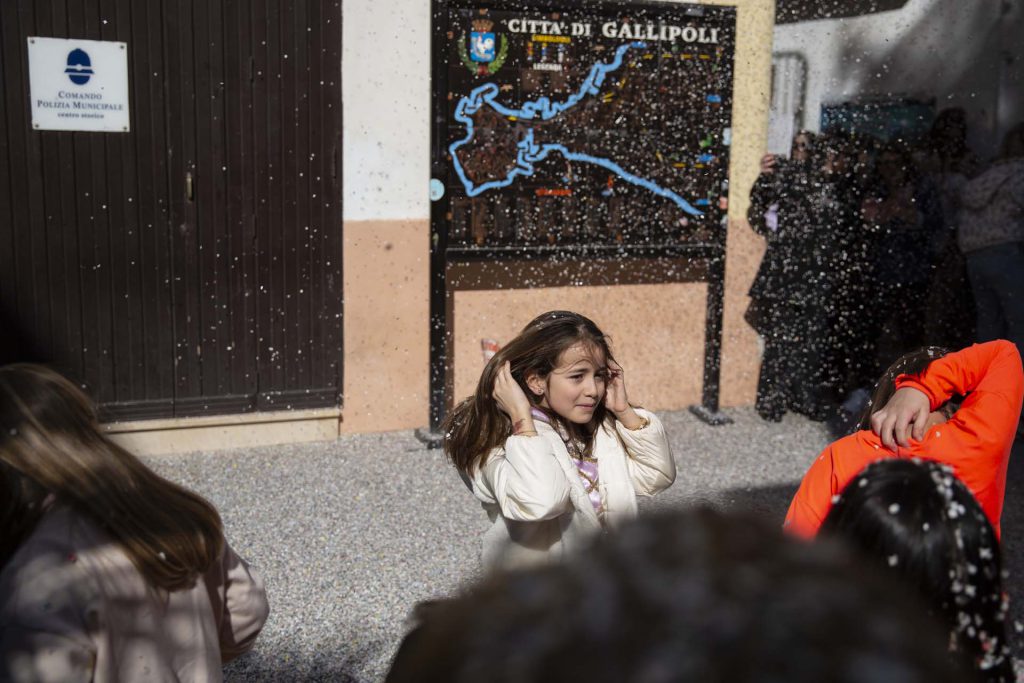
The evidence of the Gallipoli carnival is very ancient, medieval documents have been found that date it back to that period.
Nowadays, Carnival begins on January 17th with the "focareddha". Olive branches are collected to fuel small bonfires to warm up and celebrate dances and rituals.
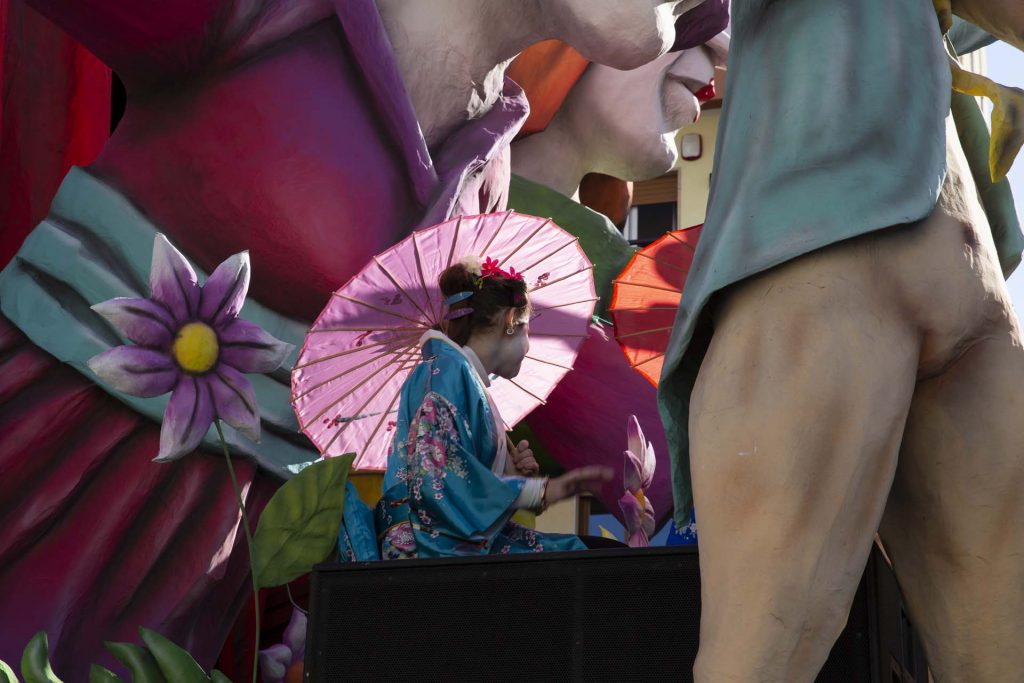
The celebrations begin on the Sunday before Mardi Gras, in Piazza Duomo, specifically on the balcony of the municipal building. Every year, the city of Gallipoli welcomes the new rulers of the feast, who present themselves to the citizens at 12 noon sharp on the first day of the festivities, receiving from the mayor's hands the key to the city and the sceptre of government over the entire city.
“Re Candallinu” and “Regina Mendula Riccia” embody the image of the Gallipoli event, acquiring their imaginative representative names from the typical carnival confetti that were historically thrown by the lords on the central Via Antonietta De Pace, when the celebration anticipated the great Bagordi prohibited by the imminent Lent.
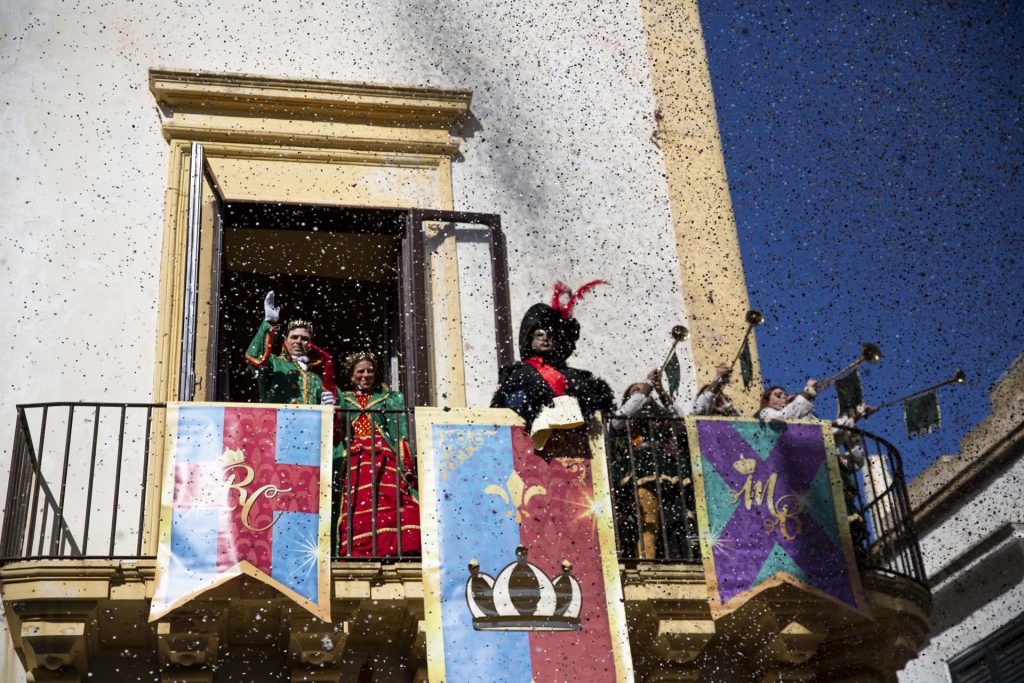
After the reading of the “Royal Edict of King Candallinu” the procession follows, winding from Piazza Duomo through the streets of the old city, accompanied by the historic flag-wavers and musicians group “Rione Lama” of Oria.
The historical procession is joined by the illustrious figures of the Balsamo family and the royal couple Joachim Napoleon (better known as Joachim Murat), King of Naples and Sicily, and his illustrious consort Caroline Bonaparte on a ‘visit’ to the city of Gallipoli.
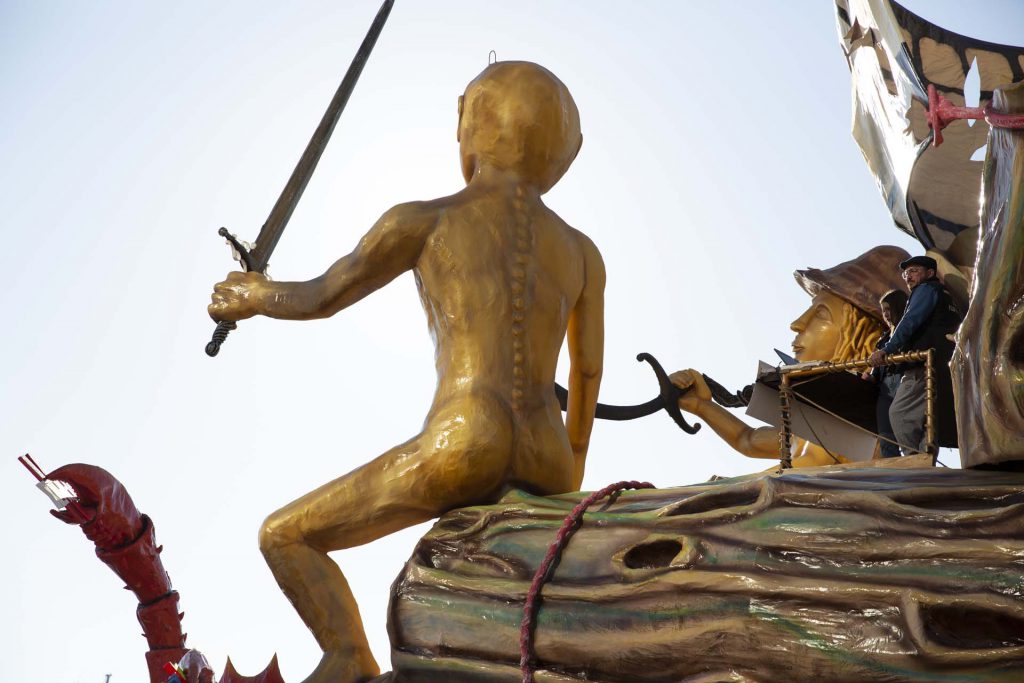
The most famous carnival mask of Gallipoli is “lu Tidoru”, or Teodoro. The story that accompanies this mask is, in fact, that of a certain Teodoro Teodoro, a young boy from Gallipoli, enlisted in the army, who cannot return home for the carnival rites. His mother prays to the good Lord so that her son gets two days off to celebrate the carnival.
Teodoro returns in time to celebrate the carnival ritual, literally diving into the food. He eats so many sausages and meatballs that he dies strangled by his own greed.
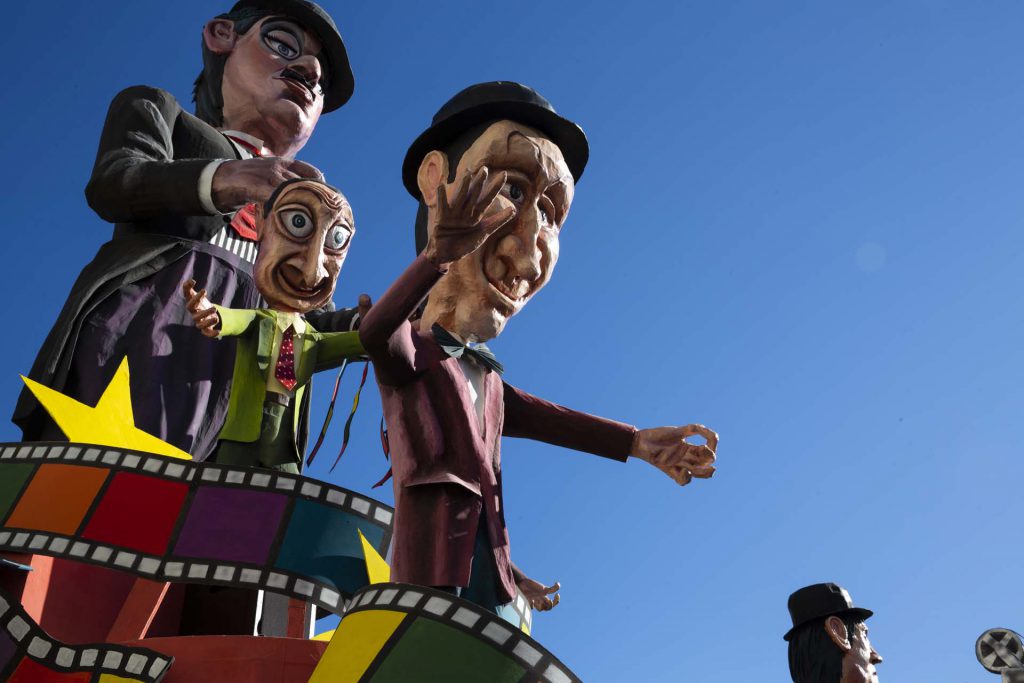











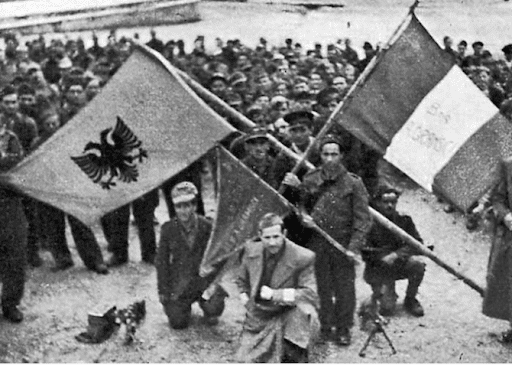
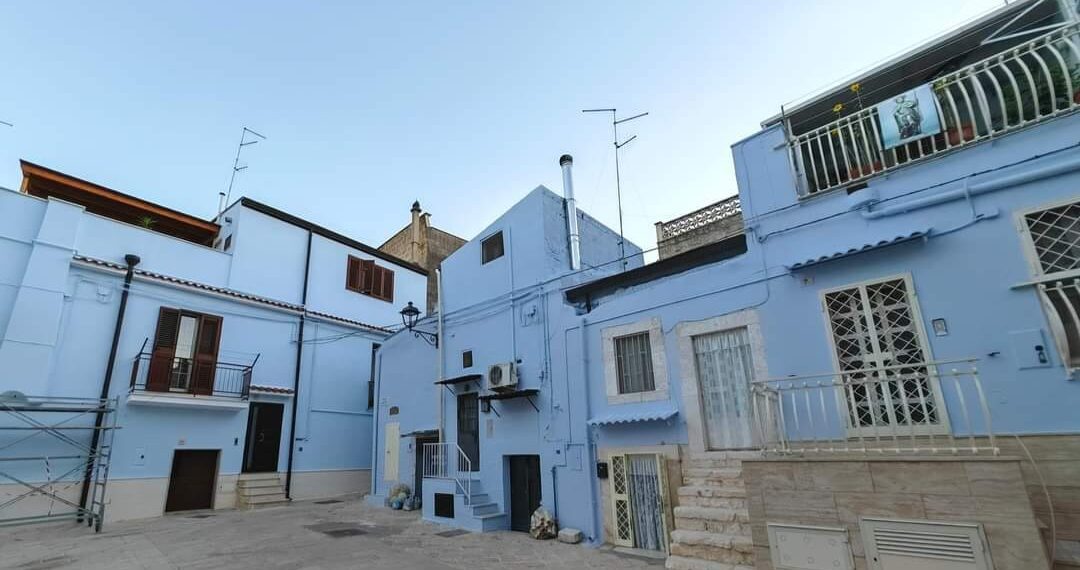
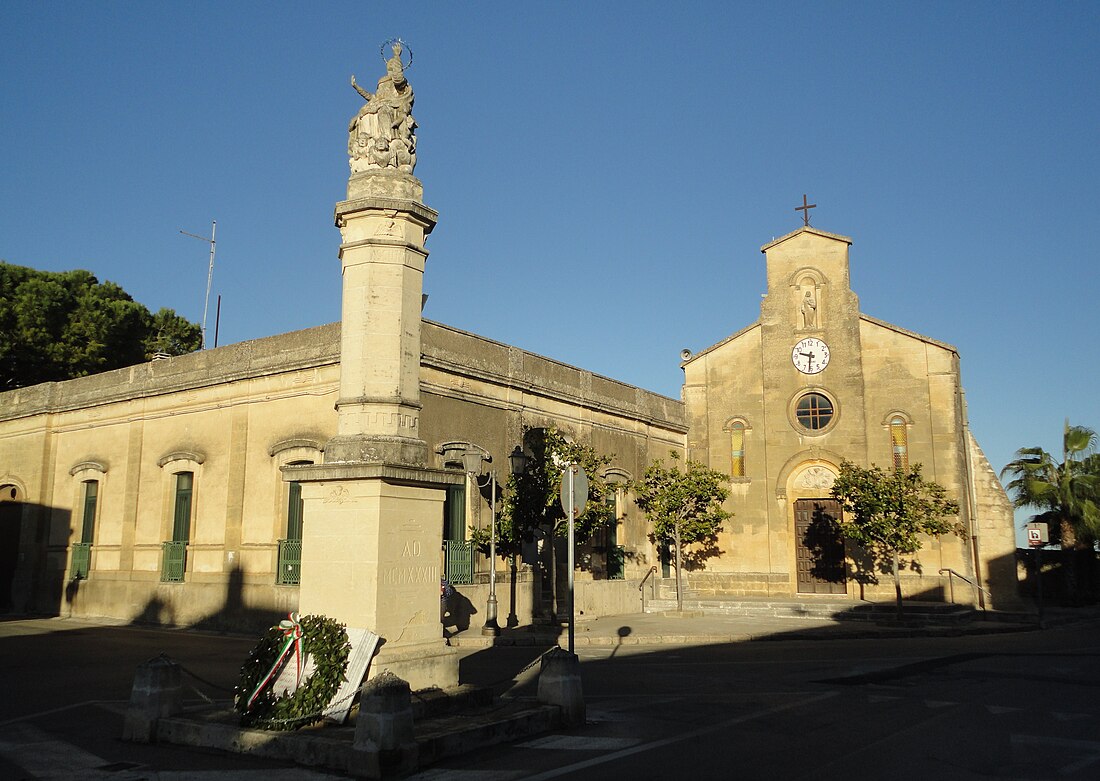
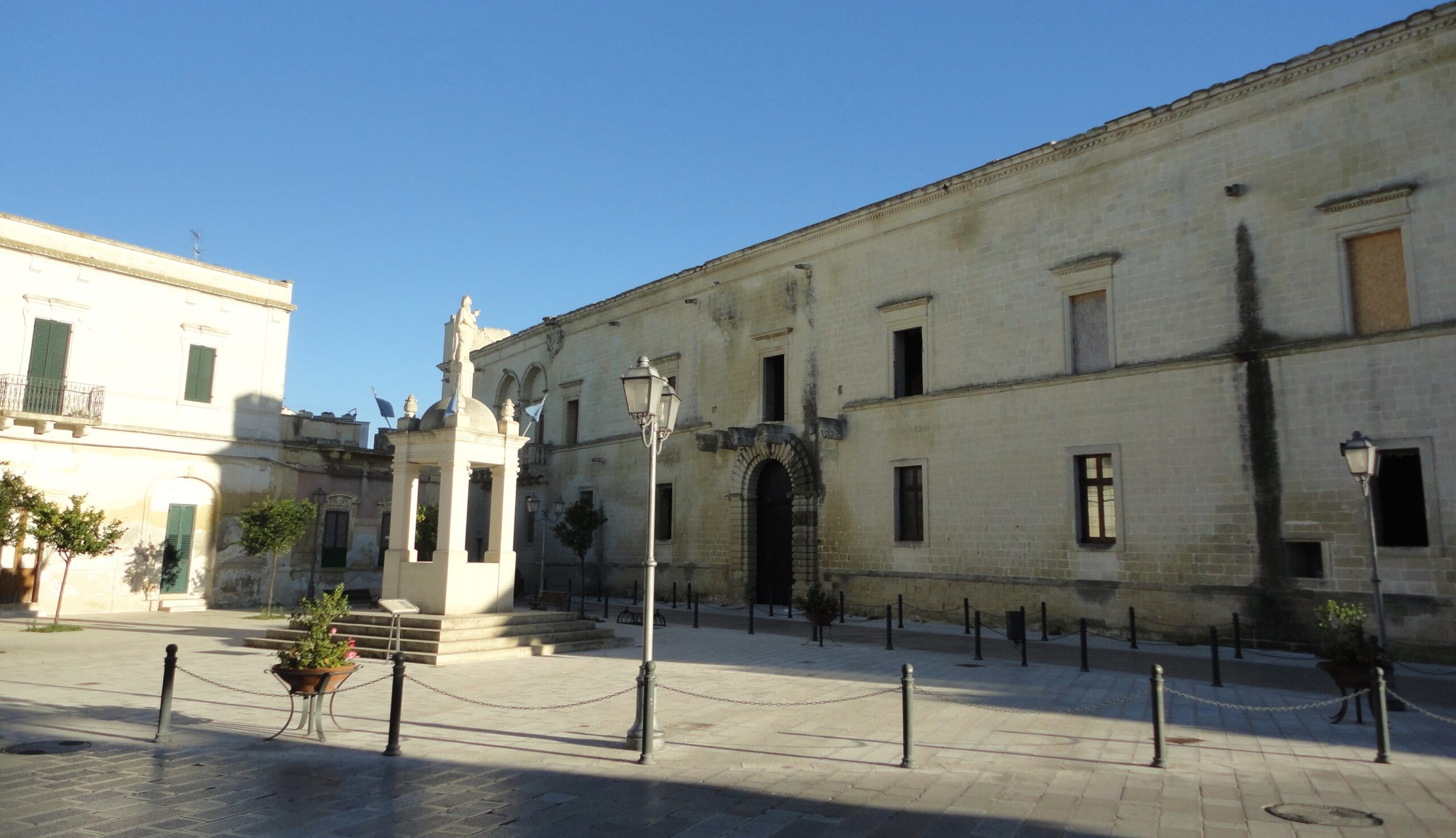




Leave a comment